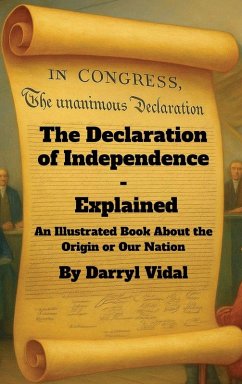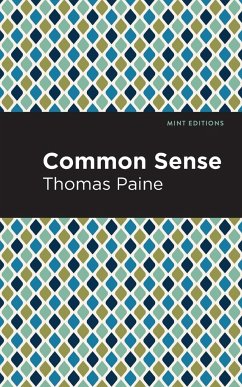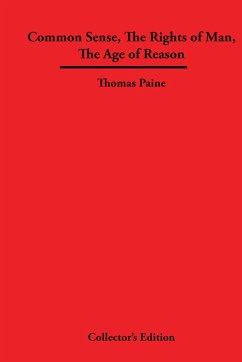
Rights of Man (Aziloth Books)
Being An Answer To Mr. Burke's Attack On The French Revolution
Versandkostenfrei!
Versandfertig in 1-2 Wochen
13,99 €
inkl. MwSt.

PAYBACK Punkte
7 °P sammeln!
Thomas Paine was an English reformer who emigrated to the American Colonies and in 1776 published 'Common Sense', a hugely influential tome that swayed many colonists to reject British rule. During the French Revolution of 1789, Paine became an honorary French citizen, but was later imprisoned, narrowly escaping the guillotine when the symbol of execution was inadvertently placed on the inside, rather than the outside, of his cell door. Paine's 'Rights of Man was' written as a rebuttal to the anti-republican 'Reflections on the Revolution in France' by Edmund Burke. Paine carefully deconstruct...
Thomas Paine was an English reformer who emigrated to the American Colonies and in 1776 published 'Common Sense', a hugely influential tome that swayed many colonists to reject British rule. During the French Revolution of 1789, Paine became an honorary French citizen, but was later imprisoned, narrowly escaping the guillotine when the symbol of execution was inadvertently placed on the inside, rather than the outside, of his cell door. Paine's 'Rights of Man was' written as a rebuttal to the anti-republican 'Reflections on the Revolution in France' by Edmund Burke. Paine carefully deconstructs the absurdities of monarchy and aristocratic privilege, contrasting them with the logical and equitable tenets of republicanism. Presaging modern-day advocates of 'small government' Paine holds that effective society predates big bureaucracies, that government is legitimate only with popular consent, and that "a great part of... government is mere imposition". Considered shocking and seditious at the time, Paine's beliefs have since become widely accepted throughout western democratic societies.












